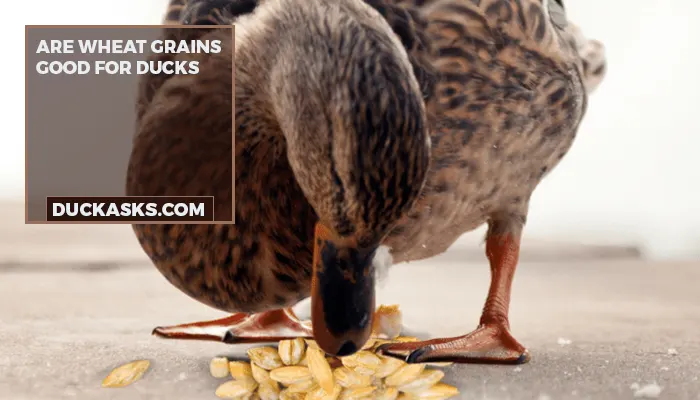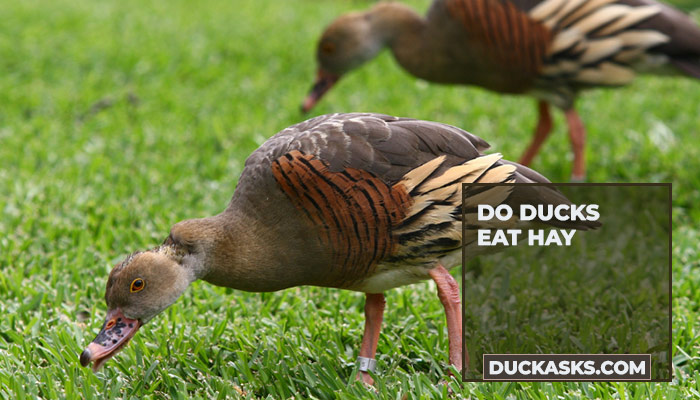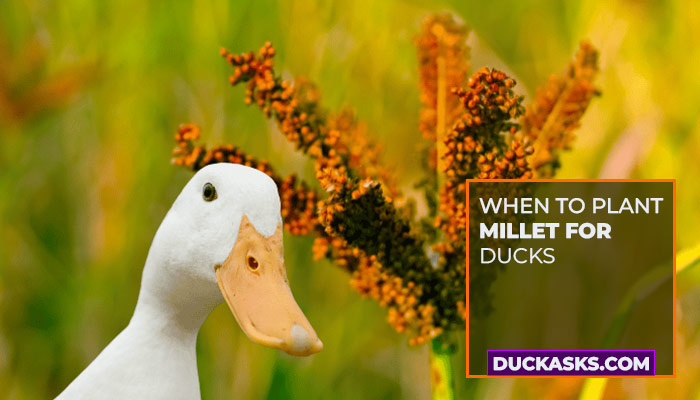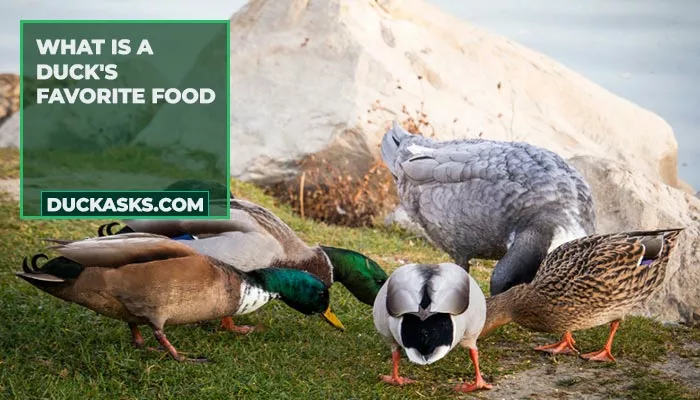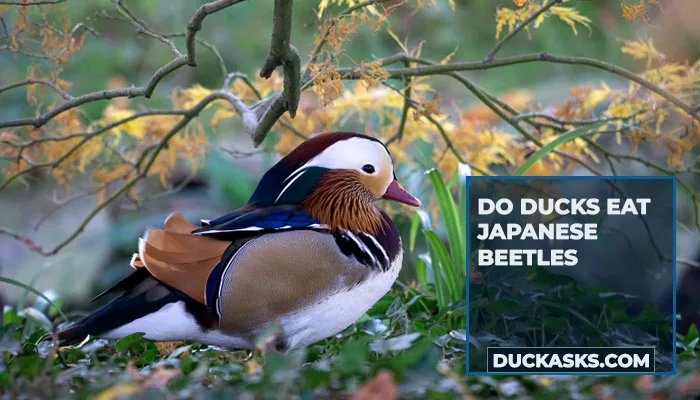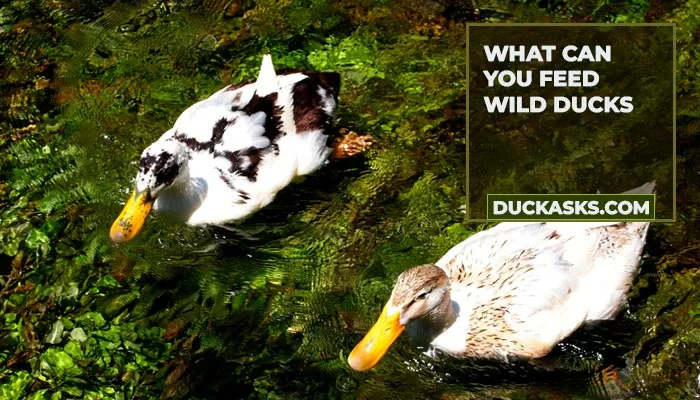Can Ducks Eat Layer Pellets?
Finding the perfect duck food is a real struggle nowadays, considering the rising prices. So, people should rely more on natural foods. And this may lead you to the question, “Can ducks eat layer pellets, too?”
Well, the answer is “Yes”! Ducks can surely have layer pellets. These are rich in most nutrients (i.e., Vitamin A, D, E, Sodium, Phosphorus, and more), making them a striking “nutrition booster source”.
However, you also have to keep in mind that not all layer pellets are formulated for ducks, which can compromise their health. So, you must consult a veterinarian before adding it to the ducks’ diets.
Want to know more interesting facts regarding ducks and their diets? If yes, then the blog is a must-read!
Want to know more about duck foods:
Can I Give Layer Pellets to Female Ducks?
Yes, you can indeed feed your female ducks layer pellets. Layer pellets have certain nutrients that benefit ducks in laying eggs. In fact, your female duck may also face a lot of complications without the usage of layer pellets.
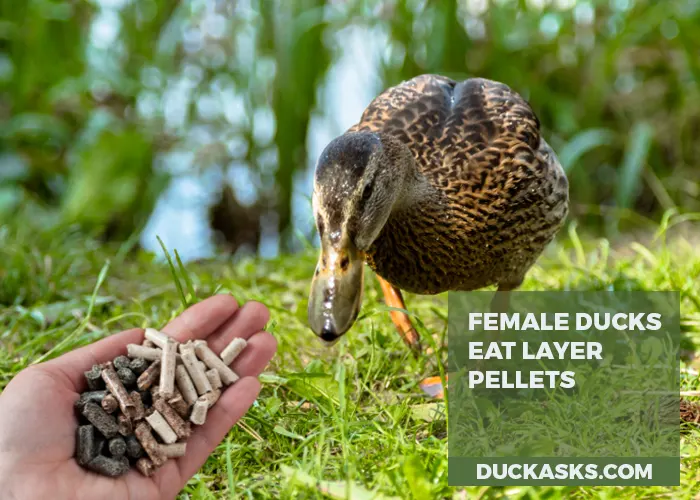
Niacin (vitamin B3) deficiency is one of the common complications that female ducks face if they avoid layer pellets during the production phase. Actually, foods that contain the appropriate amount of niacin would be meat, poultry, liver, baked goods, fish, enriched and wholegrain breads and of course, layer pallets.
Among all these food items, layer pallets are most convenient for ducks since it’s safe and contains other necessary food elements as well. Yet, you can always consult an expert before feeding layer pellets to mother ducks.
Can Male Ducks Eat Laying Pellets?
Yes, male ducks can eat laying pellets, but it shouldn’t be a regular diet! The reason is that laying pellets are made of Calcium, which is involved in making the outer layer of an egg.
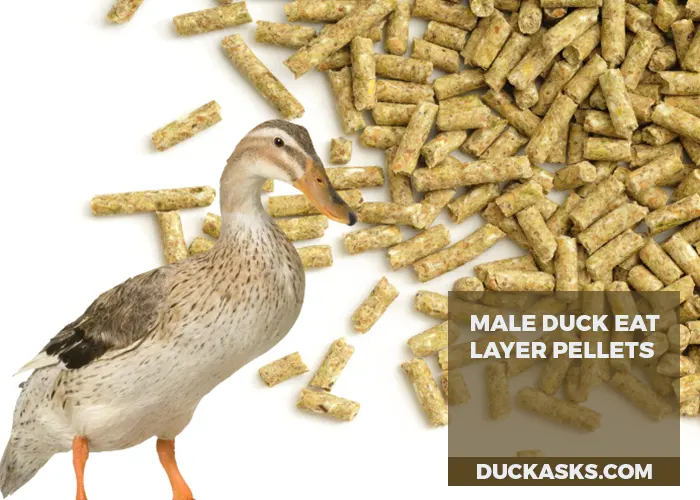
Therefore, laying pellets are a must for female ducks as it is crucial for making eggshells. That’s not all; female ducks can also take on the excessive amount of Calcium provided by the regular laying of pellets, which the male ducks can’t!
In a nutshell, as long as you keep the feeds limited, it won’t do any harm to the males!
What Kind of Pellets Can Ducks Eat?
Pellets that contain nutrients for breeding are the best choice for ducks. So the pellets must contain the following:
Calcium
Calcium prevents ducks from laying soft and thin shell eggs. Besides, Calcium treats many duck diseases, including inflammation.
Wheat
Wheat contains phosphorus, carbohydrates, protein, and sufficient fat to make your ducks healthier and more active. These fight several diseases in ducks as well.
Maize
Maize is an extremely nutritious grain that has many health benefits for your ducks. Primary, it improves bone density, fat distribution, and the digestive system.
Ducks can eat any pellet that contains these ingredients. However, ensure that the pellets’ overall size is small, as ducks don’t chew food.
Can Ducks Eat Chicken Pellets?
Yes, ducks, especially female ones, are suitable for feeding chicken pellets regularly. Here’s why:
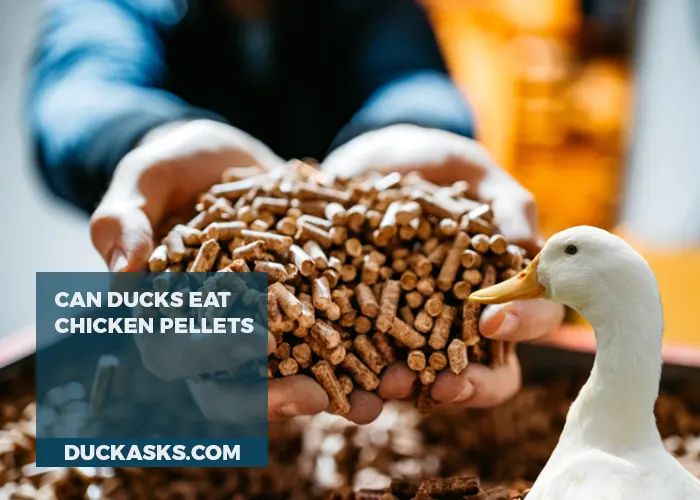
- Chicken pellets offer a high range of Calcium and niacin. Thus, defeats niacin deficiency.
- These nutrients are also a must for developing eggshells and bones in ducks.
- It contains all the essential nutrients and proteins that’ll benefit the ducks.
Note: Ducks have slightly different nutrition requirements compared to chickens. Although it might not be an issue feeding chicken pellets, it’s always recommended to go for the pellets made for ducks.
How Layer Pellets Are Safe for Ducks to Consume?
Well, layer pellets are safe as long as female ducks take them! But here’s the catch as mentioned earlier, layer pellets aren’t recommended for regular intake.
Meaning you can give it as a treat to your female ducks in small portions, but excessive amounts can lead to egg-laying issues and even joint problems.
This is because such layer pellets have Calcium in them, and too much of it will not be a healthy option for your ducks. Even if you feed specially formulated layer pellets, you should always serve a proper proportion.
What Nutrients Do Layer Pellets Provide for Ducks?
Layer pellets provide the most needed nutrients for the mother ducks, such as:
- Calcium
- Crude protein
- Zinc
- Phosphorus, and
- Fiber
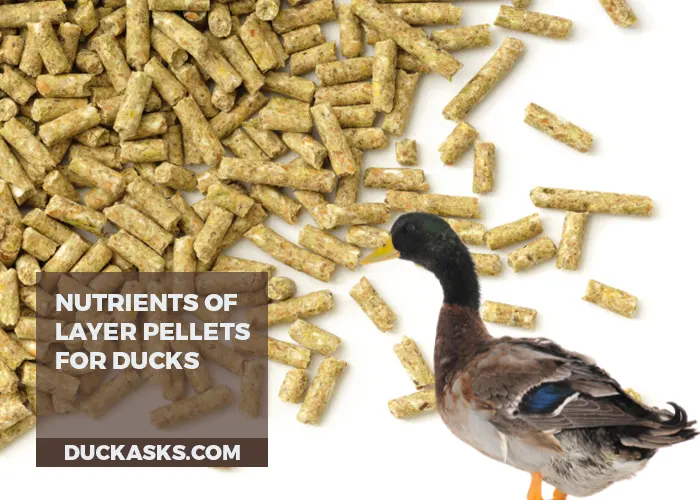
All of these are hard to find in one pellet except for layer pellets. While a sufficient amount of Calcium is best for bone density, and protein works to improve your duck’s health.
On the other hand, phosphorus, and zinc are also natural yet super beneficial nutrients for ducks. These nutrients aid them in developing their feathers and also heal wounds.
How Much Layer Pellets Should Ducks Consume?
The quantity of layer pallets as duck food varies with male and female ducks. Look into the difference between the quantities below:
Female Ducks
Mother ducks should consume a minimum of 120g of layer pellets and up to 200g of laying pellets. It is equal to 0.25 lbs to seven ounces.
Male Ducks
Since layer pallets aren’t the best option for male ducks due to excessive Calcium (unsuitable for male ducks), they should consume below minimum. 100g a day would be more than enough.
However, this range varies depending on the production of eggs and the breed of the duck. The amount may increase if the duck is of a rich breed. So, it’s always recommended that you take the suggestion of an expert before adding the amount to your ducks’ diet.
Frequently Asked Questions
01. Will there be an issue if my ducks are overfed?
Yes, there will be health issues if you somehow overfeed your ducks. This can be a severe threat to their health. Overfeeding your ducks can decrease their lifespan and even result in different diseases.
02. How can I increase my ducks’ weight?
You must follow a proper healthy diet to increase your duck’s weight without threatening its life. To increase your ducks’ weight, try choosing a diet schedule with a lot of protein. They are responsible for putting on weight. So, try feeding your ducks food that is rich in this particular food element.
03. Why is my duck weak?
A duck’s weakness can come from the lack of niacin. This occurs when your duck’s diet is too similar to a chicken’s. They can transform amino acids into niacin, while ducks cannot.
As chickens have foods that include a large amount of amino acid, it gets hard for the ducks to cope. Thus, they suffer from niacin deficiency.
Wrapping Up!
Duck foods have always been an issue that requires appropriate concern. If you don’t want your ducks to lack behind in nutritional value, maintain a proper natural diet for them.
However, we hope you got all your doubts cleared from this blog. Yet, if you have questions, consider connecting with us on Facebook, Twitter & Pinterest. And if you’ve liked the blog, please do share.
Article Reference:
- https://www.hgtv.com/outdoors/gardens/animals-and-wildlife/raising-ducks-a-primer-on-duck-housing-diet-and-health
- https://www.wattagnet.com/articles/16562-feeding-ducks-meal-pellets-or-whole-grain
- https://www.ncbi.nlm.nih.gov/pmc/articles/PMC7705048/
- https://www.ncbi.nlm.nih.gov/pmc/articles/PMC7705048/
Image Credit:
- Canva.com/photos

